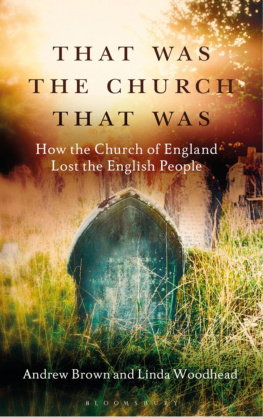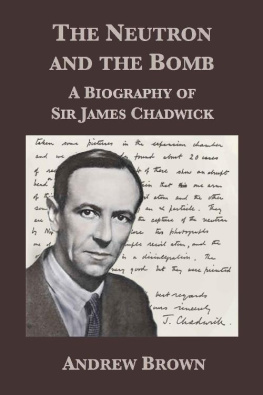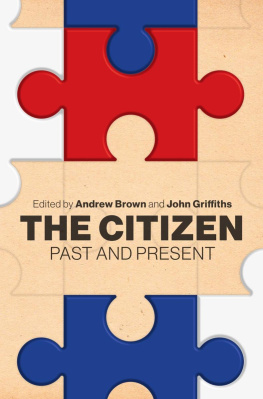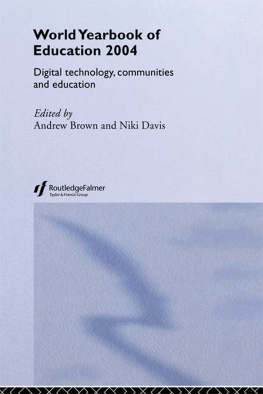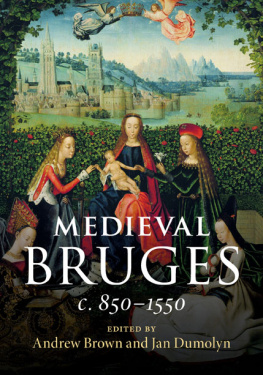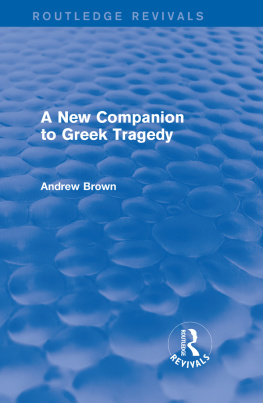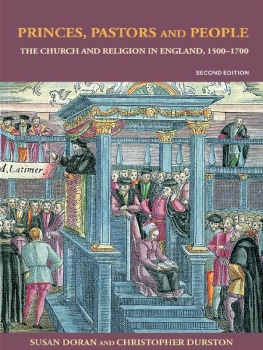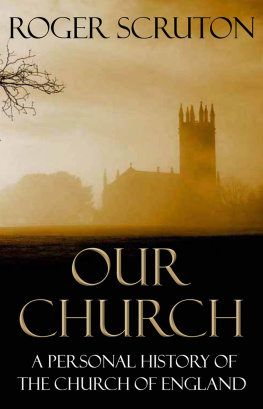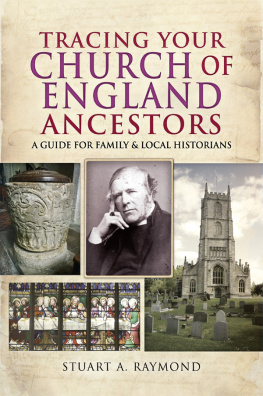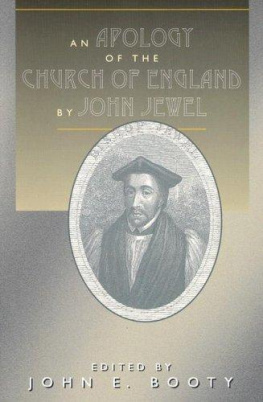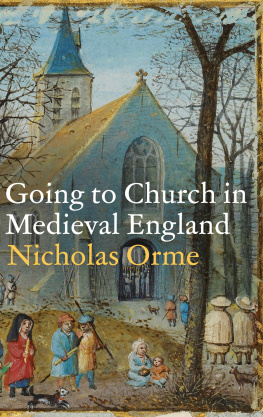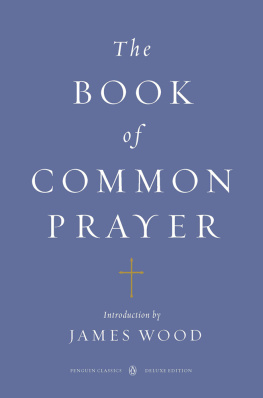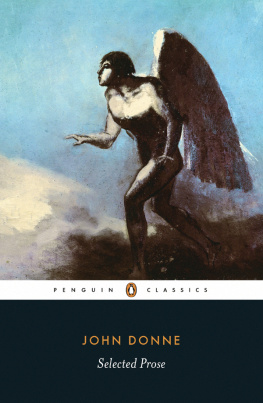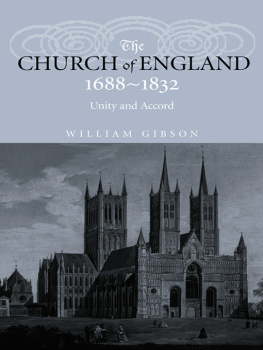
THAT WAS THE
CHURCH, THAT WAS
THAT WAS THE
CHURCH, THAT WAS
How the Church of England lost
the English people
ANDREW BROWN AND
LINDA WOODHEAD

Do not I hate them, O LORD, that hate thee? And am not I grieved with those that rise up against thee? I hate them with perfect hatred: I count them mine enemies.
PSALM 139:21-2
Truth is a naked and open day-light, that doth not show the masks and mummeries and triumphs of the world, half so stately and daintily as candle-lights.
FRANCIS BACON
What are the roots that clutch, what branches grow Out of this stony rubbish?
T. S. ELIOT, THE WASTE LAND
In the autumn of 1986 the Church of England was still run by men who smoked pipes. Archbishop Robert Runcie stood out as rather dandyish among them because he didnt smoke, and because he liked his spectacles to have light metal frames, instead of the weighty, emphatic dark frames that most bishops wore to read and which gave a deliberative emphasis to their pronouncements. There seemed nothing exotic at all about them when a small group gathered in one of the guest houses within the curtain wall of Windsor Castle.
Andrew leaned on the battlements with the then Archbishop of York, John Habgood, outside the library that Henry VI had built, and looked across the suburban river valley towards Datchet. The Archbishop gestured to the east, at his old school, which Henry VI had also founded: the chapel of Eton was still one of the largest buildings in the view. They cant teach history properly there any more, he said. Otherwise Charles Moore would know better.
Moore was then the editor of the Spectator, a young man whose ambition was so obvious and at the same time so tightly controlled that he seemed to move around inside constricting armour, like the tin man in The Wizard of Oz. He had been Andrews employer, more or less, for the previous two years and he was a very serious Christian who was determined to prevent the Church of England from ordaining women priests. In the event, he would become a Roman Catholic rather than remain in a church that did so. He would end up as editor of the Daily Telegraph and biographer of Margaret Thatcher but at the time he thought a lot about saving English Christianity.
Habgood was one of the chief enemies of the two oppositional groups within the Church. The conservative Anglo-Catholics hated him because he was a fairly unambiguous supporter of women priests; the evangelicals because he had supported and protected David Jenkins, the bishop of Durham, who was widely supposed to believe nothing at all of traditional Christianity. Mrs Thatcher and her circle hated him because he was an Etonian who believed in the order of society they wanted to overthrow.
There were women present in St Georges House but almost all of them were wives, or in one case the daughter, of a bishop. Andrew thinks he remembers one woman theologian speaking but that may have been from a later meeting. In any case, what had brought this meeting together was politics of the old-fashioned sort. It was meant to heal some of the wounds that had been opened within the establishment by the publication the previous year of Faith in the City, the Church of Englands report on Thatchers progress. Alongside John Habgood and David Jenkins, there was a cluster of Conservative politicians, among them John Selwyn Gummer, then a minister but outside the cabinet, and Ralph Harris, who ran and had founded one of the think-tanks which was assailing the moral and intellectual foundations of the welfare state. To balance them came the Labour intellectual Raymond Plant. His short talks were actually entirely devastating to the intellectual basis of the neoliberal programme; they made as much impression on the politicians as a flea might make on a tank.
Andrew came there as a journalist, mildly bewildered but thoroughly confident. For most of his life, Christianity had been neither sensible nor particularly repulsive. He had been given the kind of English middle-class education in which mild doses of conventional piety served, like cowpox, to inoculate against disfiguring enthusiasms. The background presence of Protestant Christianity was taken for granted. It might not be what you believed in, but it supplied a solid point of reference for what you didnt believe.
Hymns, prayers, and dust motes dancing in the light from chapel windows were all as much part of schooling as muddy winter afternoons on the sports field. In fact they had more point to them than sport. At prep school Andrew learnt a lot of Christian poetry by heart and sang hymns every day beneath a huge mural depicting the green hills of heaven, peopled by a muscular race who had obviously sprung there fresh from a dip in the Cherwell. When he was eleven, an evangelical beat group they called themselves the Crossbeats played for the boys beneath that mural and changed his life. It was the first time he had ever heard an electric guitar close up. The words were gibberish but the banging certitude of the instruments showed him bliss. He felt his heart, like Wesleys, strangely warmed. He has never entirely lost the conviction that redemption, salvation and justification are really musical terms.
At Marlborough, a public school founded for the sons of the clergy, one of the housemasters would explain in interviews with parents that his faith gave him confidence that he could help the boys through their troubles. This was not apparent to the boys themselves. What Andrew remembers is the rank miasma of testosterone and snobbery that rose from 800 adolescent boys confined with 15 girls. Great efforts were made there to bring Christianity up to date. The headmaster told a gathering of senior boys that masturbation was not a sin: he did it himself sometimes when his wife was away, just as he ate fish and chip suppers when she was not there to cook for him.
Until he became a religious correspondent, Andrew had met very few Christians who were not either sinister or ludicrous. This didnt really matter, because Christianity was so deeply embedded in his culture. The Book of Common Prayer was the foundation of the language that everyone spoke and read. It seemed to him that its cadences were available to every writer and its allusions common to every Englishman.
That sense seems absurd now and was anachronistic even then, but its not certain that any of us yet knew that. One of the more curious aspects of the rage with which the English ruling class turned against the institutions that had nourished it and in this respect the Thatcherites were quite as destructive as the left-wing rebels of the 1960s was that none of the attackers truly believed that the Establishment they raged against was really vulnerable. None of us could foresee a time when England would be governed quite without the wise counsel of pipe-smoking men in heavy spectacles.
The background of the pipe-smokers and their church wasnt just the British Empire. That still bestowed a certain confidence, but was being rather hurriedly consigned to history. It was the experience of the Second World War, and the bright hopes that followed it, which inspired and preoccupied them. Empire had given way to post-war Britain, a society rationally organized for the good of all, and run by benevolent educated men. The welfare state had been in many ways a creation of the Church of England: several of its architects were devout Anglicans, it had donated its hospitals, schools and other institutions, and the whole project was deeply influenced by the thought of William Temple, Archbishop of Canterbury in the 1940s.
Next page
